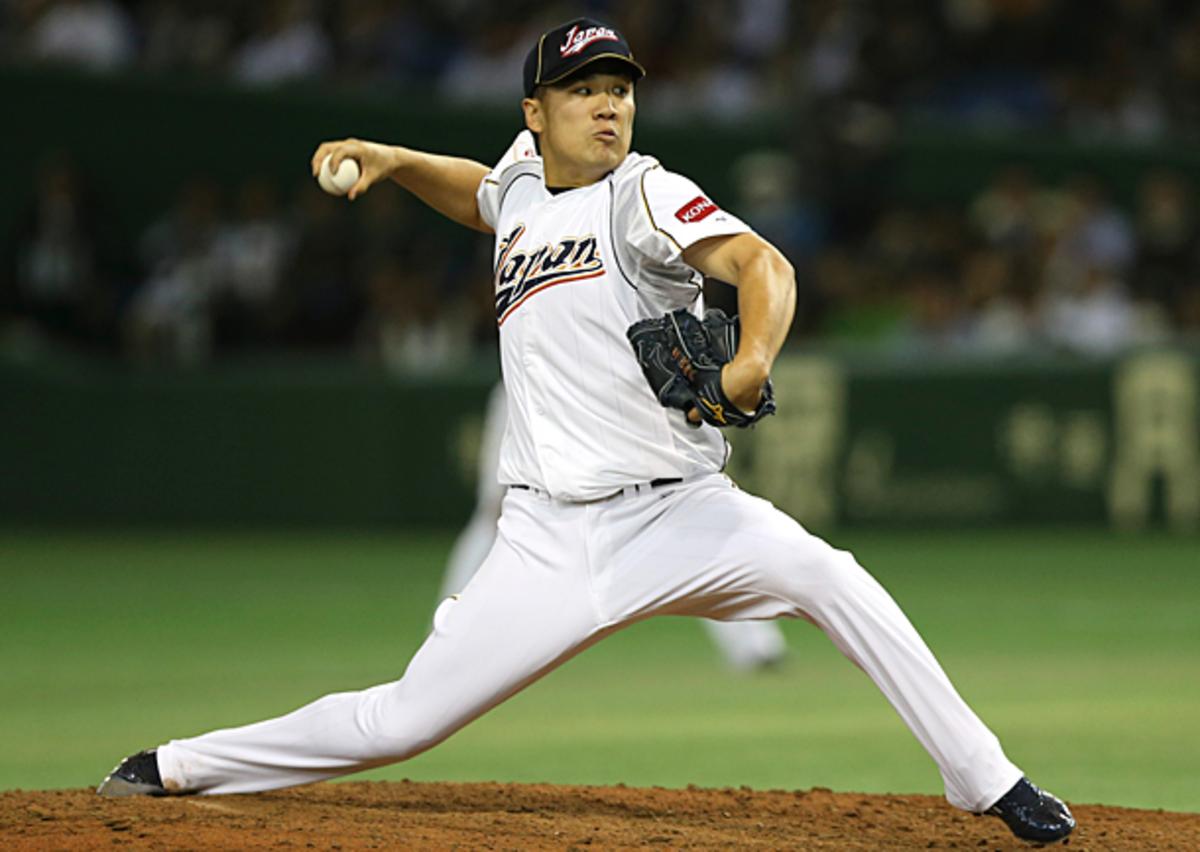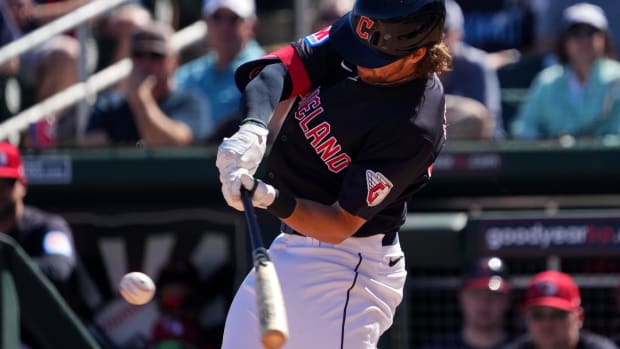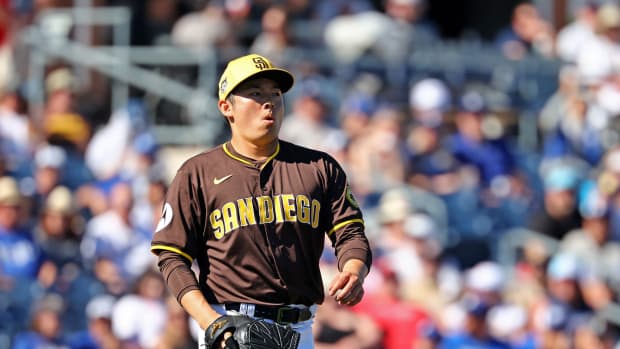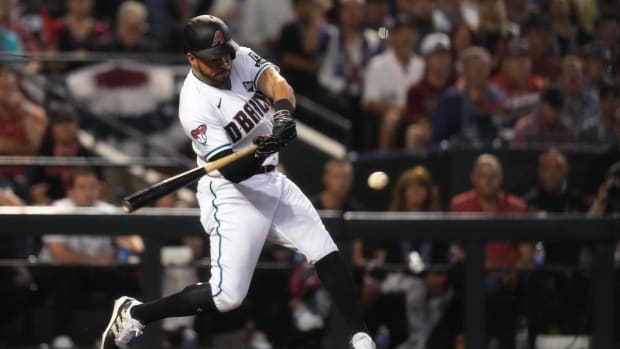
New posting system for Japanese players favors players, MLB teams
Masahiro Tanaka would be the top free-agent pitcher on the market, if his Japanese team makes him available. (Toru Takahashi/AP)
It took far longer than expected, but Nippon Professional Baseball and Major League Baseball finally ratified a revised system for the posting of NPB players on Monday. The new system enacts dramatic changes in the way Japanese players not yet eligible for true free agency (which comes after nine years of service in NPB) can come to the United States. Among those changes are a set posting price with a maximum of $20 million, and the freedom for the player to negotiate with multiple major league teams simultaneously.
Under the old system, major league teams interested in signing a posted player would submit blind bids. The highest bidder would then have exclusive rights to negotiate with the player over a pre-determined period. If those negotiations did not result in a contract, the team would not have to pay the posting fee, but the player would have to return to his Japanese team for the following season. Under the new system, the player's NPB team will set the posting fee up to the maximum of $20 million. In the 30 days after the fee is announced and the player is officially posted, any major league team willing to pay that fee will be able to negotiate with the player. The fee will be paid only by the team that ultimately signs the player. If the player fails to come to terms within that 30-day window, he will return to his Japanese team for the following season. Players can be posted only between Nov. 1 and Feb. 1.
The greatest beneficiary of this new system is the player being posted. The new system brings posted players a step closer to true free agency by allowing them to negotiate with multiple teams. By limiting posting fees to $20 million, it also leaves major league teams with more money to offer the posted player in negotiations. Under the blind-bid system, the Rangers paid the Hokkaido Nippon-Ham Fighters $51,703,411 for the rights to negotiate with Yu Darvish in December 2011, and the Red Sox paid the Seibu Lions $51,111,111 for the rights to negotiate with Daisuke Matsuzaka in November 2006. Under the new system, both would have had their posting fees capped at $20 million, leaving more than $30 million for the major league teams to offer to the player himself.
Given that, the other major beneficiaries of the new system are the major league teams. Certainly, the ability of the player to negotiate with multiple teams simultaneously could drive up the size of the eventual contracts posted players sign in the United States. The actual contracts signed by Matsuzaka and Darvish, established international superstars, were six years, $52 million and six years, $56 million, respectively. Meanwhile Cuban defector Yasiel Puig, who was free to negotiate with any team after being declared an eligible international free agent, signed with the Dodgers for $42 million over seven years despite not being perceived as major league-ready at the time, and his fellow Cuban Jose Abreu set a record for an international free agent by signing a six-year, $68 million deal with the White Sox in October.
However, that same ability for multiple teams to negotiate with the posted player will increase the chances of any given team signing the player. Two years ago, 29 teams were shut out of the Darvish negotiations before they began. This year, if star pitcher Masahiro Tanaka is posted, any team willing to pay the $20 million posting fee will be able to negotiate directly with Tanaka and his agents at length. What's more, with the posting fees for superstars like Tanaka being lower and that fee being a known amount that teams can budget for (and in the next two years of this new three-year agreement, teams can budget for it well in advance), more teams are likely to engage in negotiations with the player than were even a part of the blind bidding in the past.
The clear losers here are the Nippon Professional Baseball teams. Tanaka's current team, the Tohoku Rakuten Golden Eagles, saw a potential $30-40 million vanish from their coffers when this new system was ratified, as the $20 million max fee will fall roughly that far shy of what likely would have been the top bid for the rights to negotiate with Tanaka under the old system. As a result, team president Yozo Tachibana and assistant general manager Aki Sasaki, both of whom were in Orlando for last week's winter meetings, expressed serious reservations about posting Tanaka, and their decision on the matter is still pending.
Tachibana said that he would speak with Tanaka directly this week with the intention of honoring his wishes but also with the intention of convincing him to stay in Japan. Tanaka has since restated his desire to pitch in the major leagues. It's entirely possible that part of the conversation between Tachibana and Tanaka will be negotiations for the pitcher to remit some of his American salary to his Japanese team to compensate for the reduced posting fee. It has been rumored that, in the past, such kick-backs have gone the other way, with Japanese teams giving their departed players a share of the posting fee.



































